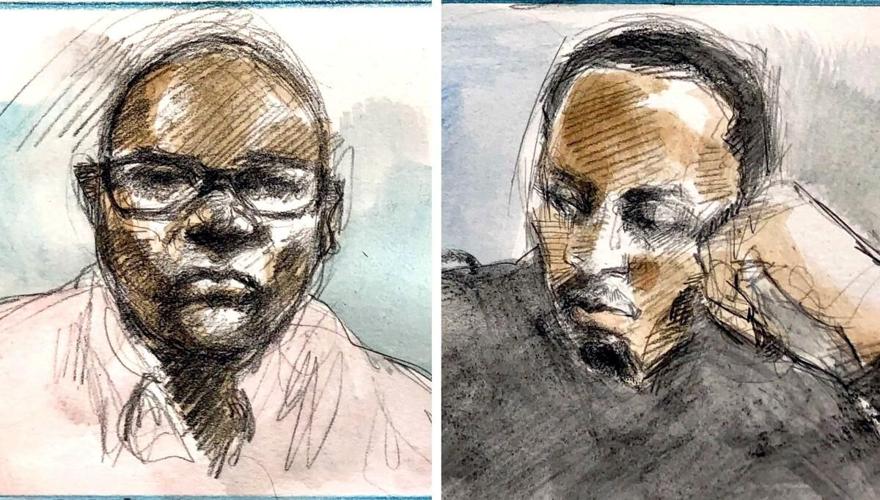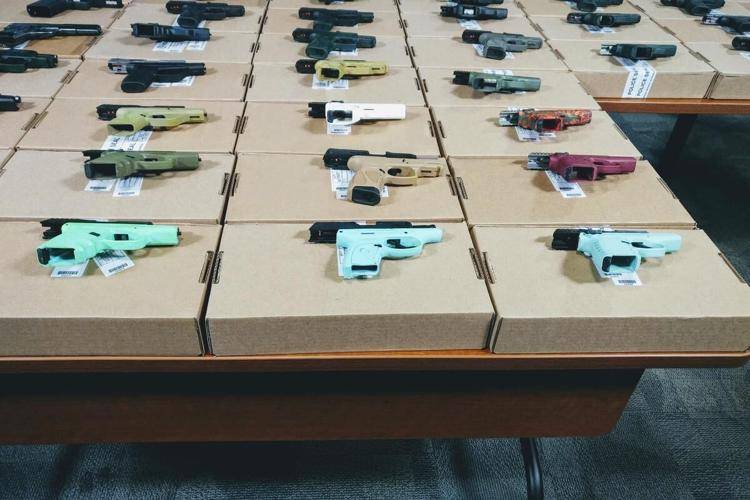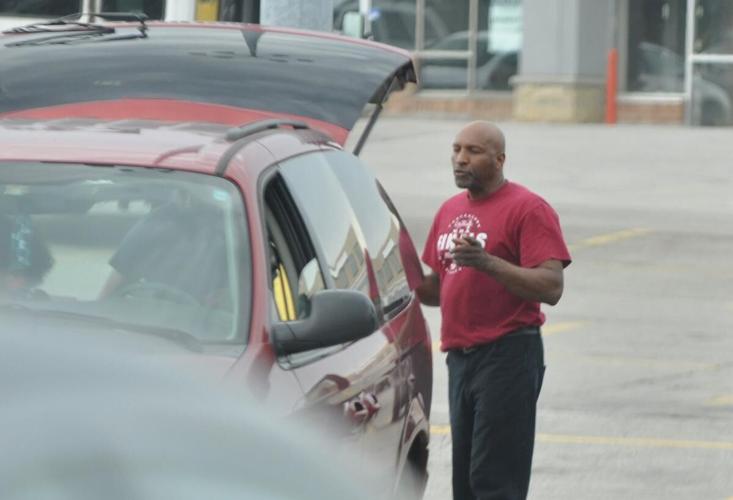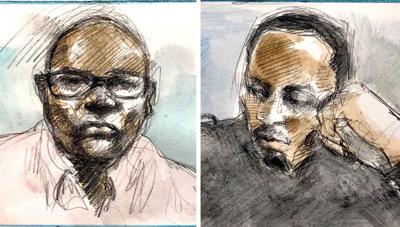The pc28╣┘═°fugitive living in Florida on borrowed time was making easy money buying handguns in the Sunshine State destined for the GTA.
ÔÇťIÔÇÖm sending over the shipment, but itÔÇÖs full of magnums on this load,ÔÇŁ Ernest Wilson told a pc28╣┘═°associate on a line police wiretapped in March 2018.
Within a few months, that police investigation, called Project Patton, resulted in the arrest of WilsonÔÇÖs main accomplice, Harris Poyser, who was nabbed leaving Cornwall, Ont., headed back to pc28╣┘═°with 60 handguns wrapped in bedding in the trunk of his rented car ÔÇö the largest handgun seizure ever made by pc28╣┘═°police.
Poyser, 60, pleaded guilty earlier this year. COVID-19 has delayed his sentencing until September.
This summer, two men alleged to have played key roles in the cross-border smuggling operation are on trial, providing a window into how deadly firearms have made their way into the hands of GTA criminals at a time when 2020 is .
The case underscores how more permissive U.S. gun laws have created a lucrative market for illegal handguns in Canada, where guns purchased south of the border for $500 can be sold on city streets for up to $4,000, with demand fuelled by criminals wanting them for protection, intimidation or status.
The men on trial, Kamar Cunningham and Bill Allison ÔÇö the latter who did, in fact, have a firearms licence ÔÇö deny any involvement in what is the first major Superior Court criminal case being heard using the video-conferencing software Zoom.
Prosecutors allege the men, acting as a criminal organization, arranged for the purchase, transportation and importation of firearms into Canada from the United States. The Crown says intercepted communications and surveillance shows Wilson used Poyser and Allison to organize the transfer of guns over the border near Cornwall for distribution in pc28╣┘═°and the GTA, and that Cunningham and another man, who has since died, assisted in their transportation and distribution.
Defence lawyers have not yet argued why their clients are not guilty. Allison is expected to testify next week as to why there was no criminal agreement with Wilson to traffic firearms and to deny selling any. CunninghamÔÇÖs lawyer, John Struthers, has suggested the Crown has not made its case.
This case first came to public attention in the spring of 2018, when pc28╣┘═°police announced they had dismantled a major firearms pipeline supplying guns to a west-end street gang known as the Five Point Generals.
No gangs have yet been mentioned during this trial, which is being presided over by Superior Court Justice Jane Kelly. This past week, she listened to hours of secretly recorded phone calls between Wilson, Poyser, the two accused and others in slang-filled conversations the prosecution says uses coded language to refer to the trafficking of illicit firearms ÔÇö but which Struthers mocked as indecipherable.
The judge also received transcripts of the calls and heard from pc28╣┘═°police Det. Const. Ryan Smith, who testified about the possible meaning of phrases and submitted a report that included a ÔÇťlexicon of termsÔÇŁ chart. In it, Smith testified that when the callers said ÔÇťdenturesÔÇŁ and ÔÇťseeds,ÔÇŁ they meant ammunition, and that ÔÇťsneakersÔÇŁ and ÔÇťmachineÔÇŁ were code for firearms.
Kelly also watched an hour-long videotaped statement Allison gave to police after his arrest on June 21, 2018. ÔÇťI donÔÇÖt know anything about guns,ÔÇŁ he told the officers conducting the interview.
Det. Syed Gajraj, who spent three months monitoring AllisonÔÇÖs calls, told him he wasnÔÇÖt buying it.
ÔÇťThe thing is I need to know where those guns are because little kids are dying in Toronto,ÔÇŁ Gajraj said.
Allison insisted he played no role in that ÔÇö ÔÇťIÔÇÖm not selling guns or drugs. I do not sell guns. I have kids,ÔÇŁ he said.
The multi-jurisdictional police probe plugged the pipeline on May 23, 2018, when Poyser rented a grey Toyota Corolla in Scarborough and headed for Cornwall, Ont., unaware he was being followed by a pc28╣┘═°police surveillance team and a plane equipped with a long-range night-vision camera.
At 9:19 p.m., he pulled into a driveway at 515 Oliver Lane in Cornwall. A short time later, a man who came out of the house loaded two large bags into PoyserÔÇÖs car.
Poyser then began his journey back to Toronto, but didnÔÇÖt get far. Within minutes, members of the surveillance team ÔÇö with the plane flying overhead ÔÇö boxed him in and arrested him, seizing the bags containing bedding along with 60 handguns, some in bright, toylike colours, and 108 magazines.
Neither the agreed statement of facts read at PoyserÔÇÖs guilty plea nor any evidence heard in this weekÔÇÖs trial explained how the handguns crossed the border.
Investigators told the Star they were unable to establish the entry point.
As for Wilson, also known as Biggs, the trial currently unfolding has heard a lot from him, via his voice record on wiretaps. But the man himself remains a mystery. An agreed statement of facts at this trial states that he was living in Florida between March 25, 2018, and June 21, 2018, but that he is now dead.
No light has been shed on how he acquired so many guns in cities such as Orlando, Lakeland, Kissimmee, Tallahassee, Winter Garden, Pompano Beach, Port Orange, and Sarasota, nor why he was never charged.
Sources say Wilson was shot dead in Miami in 2019, but is buried in Canada. A spokesman for the U.S. Bureau of Alcohol, Tobacco, Firearms and Explosives, which was involved in the investigation, declined to make any comment. Miami-Dade police have no record of a homicide investigation involving a victim named Ernest Wilson.
Prosecutors confirm at the time of his death, Wilson had two decade-old bench warrants for his arrest relating to conspiracy and possession of a controlled substance for the purpose of trafficking.
Charges originally laid against his mother as part of Project Patton have been dropped.






























To join the conversation set a first and last name in your user profile.
Sign in or register for free to join the Conversation